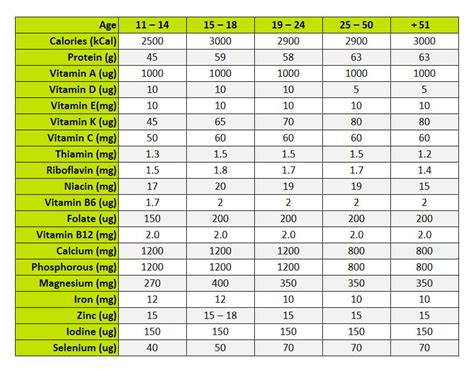For peak male performance, what optimal macro split fuels strength & recovery?

Unlocking Peak Male Performance Through Macronutrient Mastery
For men dedicated to pushing their physical limits, optimizing strength, and ensuring robust recovery, the strategic allocation of macronutrients—protein, carbohydrates, and fats—is not merely beneficial; it’s fundamental. Understanding how to properly fuel your body with an optimal macro split can be the difference between hitting a plateau and achieving consistent progress towards peak performance.

The Foundation: Protein, Carbs, and Fats Explained
Each macronutrient plays a distinct yet interconnected role in the body. Protein is the building block for muscle repair and growth. Carbohydrates are the primary energy source, fueling intense workouts and replenishing glycogen stores. Fats are vital for hormone production, nutrient absorption, and long-term energy. A balanced approach to these three is critical for male physiological function and athletic output.
Protein: The Cornerstone of Strength and Repair
For men engaged in strength training or high-intensity activities, protein intake is paramount. It provides the amino acids necessary for muscle protein synthesis, repairing micro-tears from exercise, and promoting hypertrophy. Without adequate protein, recovery is hampered, and muscle gains are compromised.
Recommendation: Aim for 1.6-2.2 grams of protein per kilogram of body weight (or 0.7-1.0 gram per pound) daily. Distribute this intake across meals and snacks to maximize absorption and muscle protein synthesis throughout the day.

Carbohydrates: Fueling Performance and Replenishing Stores
Often misunderstood, carbohydrates are essential for high-level male performance. They are converted into glucose, which is used immediately for energy or stored as glycogen in muscles and the liver. Low carbohydrate intake can lead to fatigue, reduced workout intensity, and impaired recovery, especially for men with demanding training schedules.
Recommendation: Carbohydrate needs vary greatly based on activity level. A good starting point for active men might be 3-5 grams per kilogram of body weight (1.4-2.3 grams per pound) daily, potentially higher for endurance athletes. Focus on complex carbohydrates like whole grains, fruits, and vegetables.

Fats: Essential for Hormones and Overall Health
Dietary fats are crucial for male hormonal health, particularly testosterone production, which is vital for strength, muscle mass, and libido. They also aid in the absorption of fat-soluble vitamins (A, D, E, K) and provide a concentrated source of energy. However, quality matters.
Recommendation: Aim for 0.8-1.2 grams of fat per kilogram of body weight (0.35-0.55 grams per pound) daily. Prioritize healthy fats from sources like avocados, nuts, seeds, olive oil, and fatty fish (omega-3s).

Crafting Your Optimal Macro Split: General Guidelines
While individual needs vary, several common macro splits serve as excellent starting points for active men aiming for strength and recovery:
- Balanced Performance (Muscle Gain & Strength): 30-40% Protein, 40-50% Carbs, 20-30% Fats. This split provides ample protein for muscle repair and growth, sufficient carbs for energy, and enough healthy fats for hormonal balance.
- Lean Mass & Moderate Fat Loss: 35-45% Protein, 30-40% Carbs, 20-30% Fats. A slightly higher protein intake helps preserve muscle mass during a calorie deficit, while moderate carbs still support energy levels.
- Lower Carb (for specific goals/sensitivities): 35-45% Protein, 20-30% Carbs, 30-40% Fats. This approach may be suitable for some, but typically requires careful monitoring to ensure energy levels aren’t compromised during intense training.
To calculate your specific grams, first determine your total daily calorie needs, then apply the percentages. For example, if you need 2500 calories and target a 35/45/20 P/C/F split:
- Protein: (2500 * 0.35) / 4 kcal/g = 218.75g
- Carbohydrates: (2500 * 0.45) / 4 kcal/g = 281.25g
- Fats: (2500 * 0.20) / 9 kcal/g = 55.5g

Individualization and Adjustment: Listen to Your Body
These ratios are powerful starting points, but true optimization comes from individual experimentation. Track your intake, monitor your performance, energy levels, recovery, and body composition. If you feel sluggish, increase carbs. If recovery is slow, re-evaluate protein. If hormonal balance seems off, look at your fat intake.
Consider meal timing, too. Consuming protein and carbohydrates around your workouts (pre- and post-exercise) can further enhance performance and recovery by providing immediate fuel and aiding in rapid nutrient delivery to muscles.
Beyond Macros: Hydration and Micronutrients
While macros are central, remember that hydration and micronutrients (vitamins and minerals) form the crucial backdrop for optimal performance. Ensure you’re drinking plenty of water and consuming a wide variety of nutrient-dense foods to support all physiological processes.
Conclusion: Fueling Your Male Performance Journey
Achieving peak male performance in strength and recovery is an ongoing journey, and your macro split is a primary guide. By consciously adjusting your intake of protein, carbohydrates, and fats based on your training demands, goals, and how your body responds, you empower yourself to build strength, recover faster, and unlock your fullest potential.









